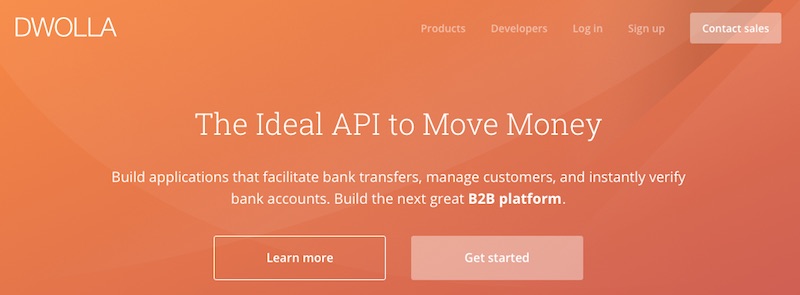
Technology is upending many traditional financial practices. Dwolla, for example, provides an API to facilitate easy ACH payments.
Fintech is the practice of applying technology to the financial services sector. Traditional financial institutions utilize it mainly to manage accounting and other back-office services. More recently, thanks to advances by startups, fintech applications are altering established financial services and threatening the very institutions that initially adopted them.
Fintech has moved beyond banking to the insurance, real estate, and healthcare industries. It has affected loan-making and business fundraising. Crowdfunding, e-wallets, and mobile payments are examples of fintech applications. Crypto-currencies such as bitcoin are another example of fintech.
Conventional financial service providers tend to concentrate on large corporations because they earn greater profits from them, leaving small and medium-sized businesses with fewer options. Fintech companies are typically focused on SMBs and start-ups by providing credit and non-traditional financing arrangements. Online loan providers and equity crowdfunding platforms use fintech to provide funding to businesses often ignored by traditional lenders.
Fintech and Ecommerce
Fintech’s greatest contribution to global ecommerce has been altering and improving the online payment system. In countries where consumers do not have credit or debit cards or bank accounts, fintech has provided alternative payment methods. Without fintech cross-border ecommerce would be almost impossible.
The emergence of payment platforms like Dwolla, Stripe, WePay, and BlueSnap that integrate with ecommerce platforms has improved efficiency and security for ecommerce. International money transfers are being accomplished with a lot less friction. When consumers use PayPal, Apple Pay, or Google Wallet, they are utilizing fintech.
Blockchain Technology
Blockchain has been one of the most successful applications of fintech. Developed in 2009, blockchain was originally conceived to digitally and anonymously send payments between two parties without requiring a third party to verify the transaction. It was designed to facilitate the transfer of bitcoins and other crypto-currencies. Blockchain can be viewed as the operating system for crypto-currencies.
We’ve addressed blockchain technology, most recently, in “10 Ways Blockchains Can Benefit Merchants.”
How does blockchain technology work? Blockchain is a public electronic “ledger” or a relational database that can be shared with dissimilar users and creates an unchangeable record of their transactions, each one time-stamped and linked to the previous transaction. Every digital record or transaction in the thread is called a block and it enables either an open or controlled set of users to participate in the electronic ledger.
Each block is linked to a specific participant and the activity log is tamper-proof. Blockchain can only be updated by consensus among participants in the system and when new data is entered it can never be erased. The blockchain contains a true and verifiable record of each and every transaction ever made in the system.
“The blockchain is an incorruptible digital ledger of economic transactions that can be programmed to record not just financial transactions but virtually everything of value,” say Don and Alex Tapscott, authors of the book Blockchain Revolution.
Blockchain’s conceptual framework and underlying code is useful for a variety of financial processes because it gives companies a secure, digital alternative to traditional processes. It eliminates the need for paper-based transaction trails. This allows merchants and customers to transact using crypto-currencies and to otherwise record transactions for future reference,. Blockchain technology can be used to store digital records and exchange digital assets.
For example, major online sellers in China, such as Alibaba and JD.com, are now using blockchain technology to give physical products their own electronic passport via QR codes to record their movement from source to customer. This protects against counterfeiting by ensuring that there is no substitution in the supply chain.
Future of Fintech
Just a few years ago, proponents were predicting that agile fintech start-ups would thoroughly disrupt the traditional banking system, making legacy financial institutions irrelevant. Banks, late to adopt fintech beyond the back-office, are now fighting back, mainly through acquisitions of start-ups. This week, J.P. Morgan Chase agreed to buy WePay in the bank’s first sizable acquisition of a fintech company. The bank plans to roll out WePay’s technology to J.P. Morgan’s four million small-business customers.
Venture capital investment in fintech companies has leveled off so start-ups are more willing to enter into partnerships with large financial institutions or be acquired. The number of fintech companies acquired by banks now exceeds the number of fintech IPOs. Through the first six months of 2017, corporate investors — mostly financial institutions — participated in more than 20 percent of fintech VC deals, according to KPMG, the accounting and consulting firm.
In other industries such as insurance and healthcare the same thing is happening. Large companies are either acquiring or investing in fintech start-ups. Like most other innovations, fintech will likely become part of the mainstream corporate structure in each of the industries it affects.
